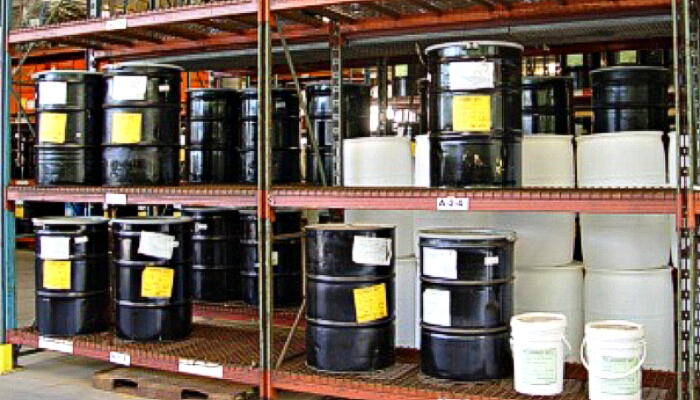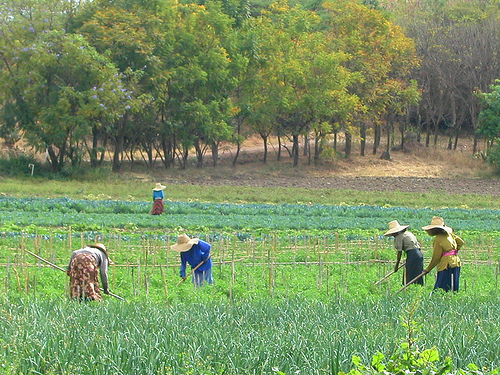Large quantities of hazardous waste material have accumulated in Afghanistan during more than eleven years of NATO presence and operations in the country. Gearing up retrograde activities now that combat operation “Enduring Freedom” has drawn to a close, NATO must now comply with international standards to dispose of this hazardous ecowaste appropriately.
The huge scale and diversity of the waste includes fuels, oils, oil filter waste and lubricants, paints and solvents, and chemical products such as pesticides and detergents. There are also compressed gas cylinders, and all types of bulbs and batteries, including lead-acid, nickel-metal hydride, dry cells, gel, nickel-cadmium and lithium. Trickier troubles include waste containing asbestos, and contaminated soils. All of this ecowaste requires an exceptional range of equipment and technical skills to comply with European Commission directives and regulations for disposal.
Ecolog-International Partnership in Afghanistan
Ecolog-International, a solutions provider in customized life support and logistics solutions, has been partnering with the NATO Support Agency (NSPA), for more than a decade. Together NSPA and Ecolog have closely cooperated on projects supporting the NATO-led mission in Afghanistan.
As an integrated service solutions provider for the various NATO projects Afghanistan-wide, Ecolog performs multiple services in order to maintain facilities and provide life support services, often in very remote areas. Day to day projects include facility maintenance, environmental services, logistics, food preparation, and water provision.
Six reverse osmosis water purification units provide sustainable and uninterrupted supply of 5,500 cubic meters per day of potable and non-potable water, maintained and operated by Ecolog for NSPA. Ecolog also provides and maintains dozens of heavy equipment vehicles and more than 600 light vehicles. They also manage laundry, ablution, and cleaning services for the troops.
Responding to the Troop Drawdown
Responding to this new challenge of ecowaste disposal, Ecolog has fullfilled the stringent EU criteria associated with such a large-scale operation. With large numbers of personnel, as well as appropriate equipment, Ecolog is finding flexibility to handle the new cleanup project as the dismantling of force establishments and drawdown of forces in Afghanistan proceeds.
Peter Esser, Group General Manager of Strategy and Development of Ecolog International, stated, “We are very proud to be working to support NSPA in Afghanistan and we feel we are regarded as a partner in this endeavor, which was made possible under their leadership in gathering requirements of the contingents from all the nations under a single umbrella, while safeguarding continuous quality standards.”
Hazmat and Dangerous Waste Disposal
Ecolog has well-established experience in the field of Hazmat and dangerous waste disposal. Ensuring compliance in Afghanistan with the EU directives on waste incineration, Ecolog currently operates twelve state-of-the-art waste incinerators, including at Kandahar Airfield and in Mazar el Sherif. There are medical and non medical waste incinerators, and all are equipped with flue-gas treatment and continuous emissions-monitoring systems.
Together with the waste incinerators, Ecolog also operates a broad array of other disposal equipment. They are currently putting bulb crushers to good use, as well as oil filter crushers, aerosol piercers, refrigerant recovery machines, and a wide range of recycling machines, with plans to shortly add a lead acid battery recycling machine.
In total, more than 600 tons of various hazardous wastes have been collected from multiple camps in Afghanistan. First it is removed and transported to dedicated consolidation centers. There, the ecowaste is segregated, treated, and recycled properly in the majority of cases. Local partners in collaboration with Ecolog handle the treated and recyclable materials within Afghanistan. Materials excepted from this process are shipped to Germany for proper disposal.
 (Image note and source: Aerial view of Kandahar Airfield, Afghanistan. Wikicommons)
(Image note and source: Aerial view of Kandahar Airfield, Afghanistan. Wikicommons)
Heroically Supporting the NATO-led Mission
The NATO-led International Security Assistance Force (ISAF) has been conducting security operations since August 2003, while also training and developing the Afghan National Security Forces (ANSF). Ecolog and NSPA started close cooperating on several projects supporting the NATO-led mission when the NSPA was called in to take over operations of behalf of NATO. The first project on which they partnered was managing operations at Afghanistan’s Kandahar Airfield.
At Kandahar Airfield the largest laundry facility in Afghanistan is operated by Ecolog. Over 4,500 laundry bags have been serviced there daily. Across the country, Ecolog provides over 200 hand-washing stations, and over 1,600 mobile sanitation units. These are serviced every day, along with cleaning tens of thousands of square meters in various base facilities. In addition, Ecolog collects liquid waste and operates the wastewater treatment plant, which handles nearly 4,000 cubic meters of wastewater daily.
Overall, more than 4,000 Ecolog employees are still deployed in Afghanistan, supporting NATO and NSPA operations at bases, facilities, and locations across the country. Given the remoteness of the project locations and the extreme temperatures, the projects in Afghanistan pose a major challenge for all. By providing such a wide range of life-critical services, NSPA and Ecolog have been striving heroically to do whatever is needed to support and ease the daily routine of the troops on the ground.
Transitioning to a New Phase in Afghanistan’s Development
In 2011, as agreed with government authorities of Afghanistan, a process of transition of full security responsibility to the Afghan security forces and institutions was launched. That process has been implemented as scheduled and is now complete. The conclusion of combat operation “Enduring Freedom” was recently celebrated by ISAF at a special ceremony held at the Kabul headquarters.
“Resolute Support,” a new NATO-led follow-on non-combat mission has also been agreed upon with the Afghan authorities. Beginning in 2015, Afghanistan’s National Security Forces will be trained, advised and assisted, and contributions will continue for the long-term financial sustainment of those forces.
As Afghanistan enters into a new phase of relations with NATO, NSPA and Ecolog are committed to continuing their partnership, sharing in the vision to sustain Afghanistan’s development.
 (Image note and source: ISAF special ceremony in Kabul, Afghanistan, celebrating the end of combat operation “Enduring Freedom.” Dec. 28, 2014. Globalresearch.ca)
(Image note and source: ISAF special ceremony in Kabul, Afghanistan, celebrating the end of combat operation “Enduring Freedom.” Dec. 28, 2014. Globalresearch.ca)
(Top image note and source: Hazardous waste storage. Ct.gov)
(News source: PRNewswire)








